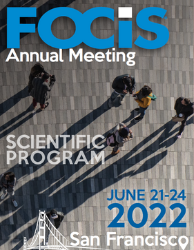Regulation of Allogeneic T Cells by Human Group 2 and Group 3 Innate Lymphoid Cells and Applications for Cell Therapy
- SC
Sarah Crome, PhD
Assistant Professor
University Health Network and University of Toronto
Toronto, Ontario, Canada - HV
Hans Dieter Volk
Institute of Medical Immunology, Charité Universitätsmedizin Berlin
Berlin, Berlin, Germany
Presenting Author(s)
Chair(s)
Harnessing regulatory immune populations in cell-based therapies for transplantation is a promising tolerance-promoting approach. Innate lymphoid cells (ILCs) are a family of lymphocytes that rapidly respond to tissue signals and orchestrate immune responses to maintain tissue homeostasis. In mice, group 2 ILCs (ILC2s) and group 3 ILCs (ILC3) were shown to limit allogeneic T cell responses and enhance regulatory T cell function, supporting their potential in promoting immune tolerance in transplantation. To assess human ILC2 and ILC3’s cell therapy potential, we developed methods to isolate and expand human ILC2s and ILC3s from blood in a manner that maintains expression of signature cytokines and transcription factors. Single cell RNAseq and flow cytometric analysis revealed both ILC2s and ILC3s expanded using our approach also express high levels of the regulatory cytokine IL-10 and the tissue repair factor amphiregulin, consistent with dual immunoregulatory and reparative potential. Using a xenograft model of graft-versus-host disease (GVHD), we show that adoptive transfer of human ILC2s and ILC3s reduces the severity of xenograft GVHD and prolongs survival of NOD-scid-IL2Rγnull mice. ILC2s and ILC3s reduce proliferation of allogeneic CD4+ and CD8+ T cells and ILC2s limit inflammatory T cytokine production. Ongoing studies are delineating mechanism harnessed by allogeneic ILC2s and ILC3s to limit T cell responses, but in vitro studies support human ILC2s directly regulate allogeneic T cells through secreted factors. Our findings support that human ILC2s and ILC3s limit harmful T cell responses and may have applications in adoptive cell-based therapies for transplantation.

